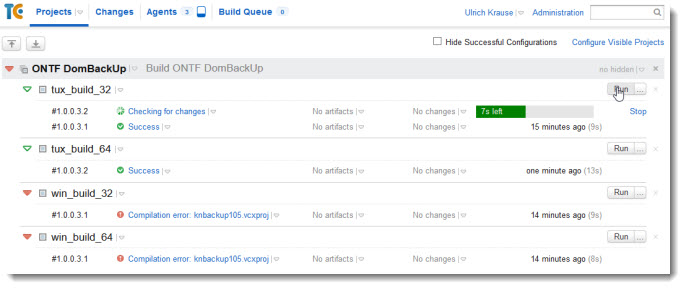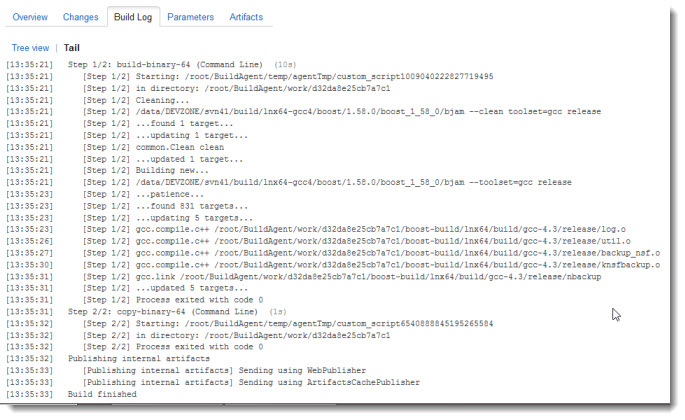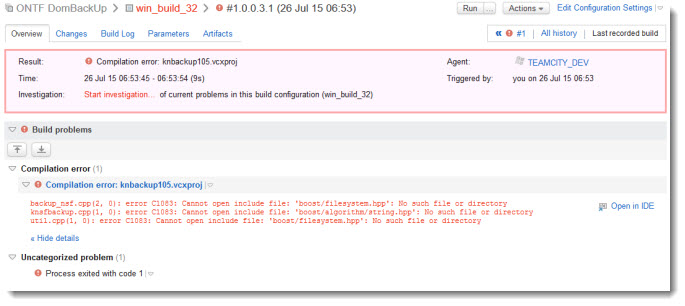Building binaries for multiple platforms from source is time consuming. For my ONTF project “DomBackUp” I have to build binaries for AIX (not sure, if I can support AIX in future builds ) , LINUX and Windows, both on 32Bit and 64Bit.
Aside from Atlassian JIRA and STASH, a couple of virtual machines are involved. I also started using TEAMCITY to automatically build the binaries without going to each of the build systems and invoke the build process manually.
TeamCity is a Java-based CI server package. The TeamCity installation and configuration is quick and easy. The fact that it is Java-based should not be an impediment to Windows development shops.
The TeamCity server is a main component, but the browser-hosted interface serves as the primary way to administer TeamCity users, agents, projects, and build configurations.
The main advantages are
- Easy to setup, use, and configure
- Widely-used and well documented
- Integration with a wide variety of tools and technologies
- Professional Server is free for up to 3 agents and 20 build configurations.
You can create the build steps manually or let TeamCity search your GIT repository for existing .sln files and propose build steps automatically. All you have to do is to review the steps and select the correct build configuration ( x64 or Win32 ). For the Linux builds, I use boost build scripts. So you only have to tell TeamCity to invoke the script when the build agent runs.
TeamCity will automatically grab the output from the build script. This makes it very easy to identify errors in the script itself or even compile errors.
Using a CI solution makes it very easy to create nightly builds. Due to the flexibility in configuration, you are able to create the binaries aside from any needed template, have CI update and harmonize the version and build numbers across all parts of your project, create release notes from JIRA and put all parts together to build a shippable package.
The process can be triggered manually or scheduled to create nightly builds.
You are also able to rebuild any previous version by simply checkout the correct commit from your repository.


